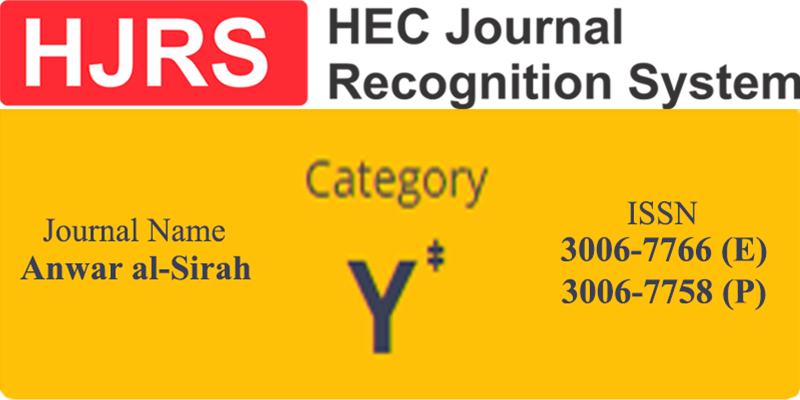عصری عوامی صحت کا طریقہ کار اور نبی کریم ﷺ کی تعلیمات کا تقابلی جائزہ
A Comparative Analysis of Modern Public Health Methods & the Prophet's Teaching
Keywords:
Public Health, Teachings, Messenger of Allah, Ethics, Ethical Framework, Healthy Society, Equal DistributionAbstract
This study shows; the comparative analysis of modern public health methods and the prophet’s teaching. It shows; how Messenger of Allah established a healthy society. It highlights the essential role of Islamic teachings in guiding public health policies, programs, and involvements. The study argues that a healthy ethical framework is essential for addressing the complex challenges modeled by public health issues; particularly in terms of ensuring equitable distribution of health benefits and burdens across various populations. It highlights the importance of Teachings of Messenger of Allah in public health sector. Equity, as a core component of the proposed ethical framework, is examined in depth. It explores the social factors of health and their role in creating health gaps, advocating for policies that address the root causes of these inequities. This article examines the importance of cleanliness in Islamic Teaching. Taking cleanliness, Ablution and Bath is compulsory in Islamic teachings. In this way, people of society are protected from many diseases. It also examines the teaching of Islam like prayer, fasting, Hajj, Zakat and how these teachings play an important role in creating a healthy society. Everyone should have equal chances to be healthy, no matter who is He. The paper ends by saying that we need to keep thinking about how to make public health fair for everyone. We should work together to find ways to improve health for everyone.
Downloads
Published
How to Cite
Issue
Section
License
Copyright (c) 2024 Muhammad Tahir Akbar M. T. Tair

This work is licensed under a Creative Commons Attribution-NonCommercial 4.0 International License.
Copyrights of all research papers published in Journal of the 'ANWĀR AL-SĪRAH are held by the auther(s). However, as the 'ANWĀR AL-SĪRAH follows Open Access Policy under license CC by NC for global exchange of knowledge, readers are freely allowed to download, read and print the full text papers of 'ANWĀR AL-SĪRAH without prior permission from the 'ANWĀR AL-SĪRAH or the author(s) as long as they acknowledge/cite the 'ANWĀR AL-SĪRAH as the original source.


